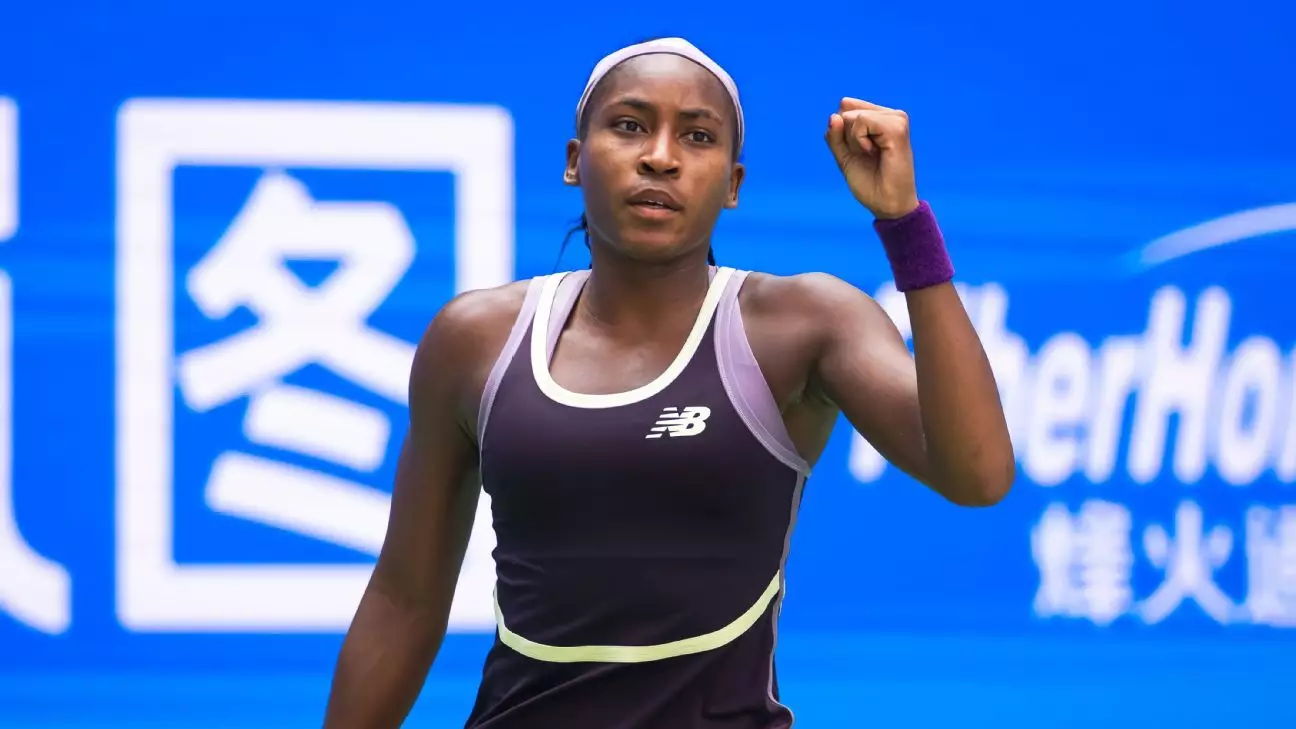The decision to host the WTA Finals in Saudi Arabia from 2024 to 2026 has ignited a wave of commentary, particularly regarding social issues like gender equality and LGBTQ rights. This landmark event, which showcases the top players in women’s tennis, is being scrutinized under a magnifying glass, especially in light of the kingdom’s contentious human rights record. Coco Gauff, the young American tennis prodigy and former US Open champion, openly addressed the complexities surrounding this decision, acknowledging that while sporting events can foster dialogue and change, significant concerns remain about the socio-political climate in Saudi Arabia.
Gauff’s perspectives serve as a potent reflection of the intricate relationship between sports and societal values. While she highlighted the potential for tennis to inspire and empower, particularly among Saudi women, she expressed her reservations. The event represents not only an opportunity for sports diplomacy but also a platform that could somehow sway the narrative around pressing issues like women’s rights in a country where such freedoms are often curtailed.
Coco Gauff articulated a vision where sport acts as a vehicle for initiating change. This perspective intertwines with the WTA’s initiative to invest in the Future Stars program, aiming to increase participation among women in tennis throughout the kingdom. The ambition to engage “a million people playing tennis by 2030” underscores a wider objective: using sports as a host for dialogue on gender equality. It’s a step in the right direction, reflecting a narrative where sports could bridge cultural gaps and challenge the entrenched norms of gender roles.
Critics, including tennis legends like Chris Evert and Martina Navratilova, have challenged whether such initiatives can effectively bring about substantive change in a society that is still grappling with various human rights concerns. The essence of their critique revolves around whether the WTA’s move could serve as an example of “sportswashing,” a term used to describe practices where nations attempt to distract from their violations by showcasing high-profile sporting events. It urges us to analyze whether positive impacts and genuine progress can occur in tandem with aspirational goals.
Gauff’s candid approach highlights the personal conflicts and negotiations athletes must navigate when competing in countries with controversial backgrounds. Her statement, “I would be lying to you if I said I had no reservations,” brings a human element to the narrative. It champions the need for empathy and understanding in these discussions, marking a shift from the pure business of sports to a more conscientious model that contemplates ethicality.
The mention of discussions about LGBTQ issues with influential figures like Princess Reema Bandar Al Saud illustrates an important facet of such initiatives. Engaging local leaders is essential for laying a foundation for progressive change, yet it remains to be seen how receptive the broader social landscape will be toward these ideas. The pressure of lived experiences, particularly for marginalized groups, should be at the forefront of these conversations, complicating the traditional narratives surrounding athletes and their roles as ambassadors of change.
As the 2024 WTA Finals approach, attention will increasingly shift to the tangible outcomes of this decision. Will the visibility afforded to women athletes result in positive ripples across the cultural fabric of Saudi Arabia? Will it push forward conversations about equality and rights that have long been suppressed? Gauff’s stance that she would “probably wouldn’t come back” if progress was not evident speaks to the urgency for authentic change that extends beyond surface-level commitments.
The hosting of the WTA Finals in Saudi Arabia is not merely a sporting decision; it is a multi-faceted intersection of sports, culture, and social responsibility. As athletes like Gauff take center stage, their roles evolve beyond that of mere competitors to become embodiments of change, propelling discussions on gender and rights. The world will be watching closely, recognizing that the true measure of this venture will not only be the rallies on the court but also the echoes of societal transformation it hopes to engender off it.


Leave a Reply